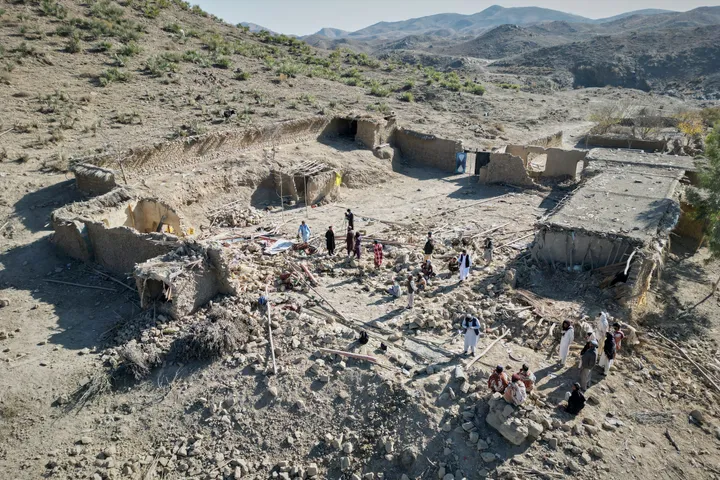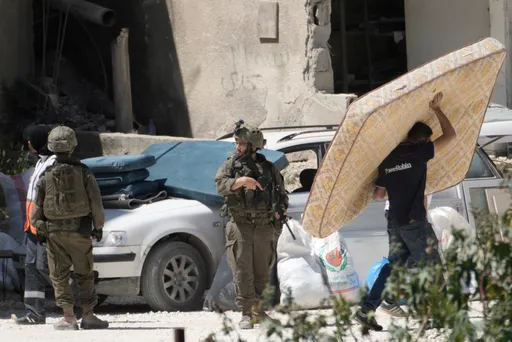On July 22, Israeli demolition teams began work early in the neighbourhood of Wadi al Hummus in the village of Sur Bahir in the occupied West Bank. The operation involved a mini army made up of 700 police and 200 soldiers.
The dastardly task was to raise to the ground 16 residential buildings containing up to 100 housing units, which Israel claimed were built without permits and too close to the separation barrier which divides Palestinians from other Palestinians and which was declared illegal under the International Court of Justice ruling of 2010.
The images of dozens of Palestinians wrenched away from their homes in tears and the spectacular use of explosions to bring the structures down was shocking to all but the most ardent supporters of Israel.
Video images of Israeli commanders smiling and congratulating themselves on a crime well done were even more shocking. They would return to their homes, possibly in illegal settlements just after they put dozens of families, men, women and children on the streets.
To many Palestinians, this summarised how Israel has become a ruthless, oppressive state that sees them as having no rights while providing Jewish Israelis with full rights whether they live in Israel proper or in illegal colonies in the West Bank and East Jerusalem.
Swift condemnation
Condemnation of the Israeli action was swift. Saleh Higazi, Deputy Middle East and North Africa Director for Amnesty International said: “These demolitions are a flagrant violation of international law and part of a systematic pattern by the Israeli authorities to forcibly displace Palestinians in the occupied territories; such actions amount to war crimes.”
The Palestinian Prime Minister also condemned the demolitions calling them a “war crime and a crime against humanity”. He promised to take the demolitions to the International Criminal Court.
The UN’s OCHA expressed sadness at the demolitions and confirmed: “Israel’s policy of destroying Palestinian property is not compatible with its obligations under international humanitarian law.”
Notable by its silence on the demolitions was the US administration. However, US Ambassador to Israel and ardent supporter of Israel and the settlement enterprise, David Freidman finally broke that silence not to express sadness or to condemn Israel but to defend its decision.
He tweeted claiming the demolitions were not motivated by racism and that the “Demolition authorized (sic) as to some but not all illegal structures on national security grounds by the highly regarded Israeli High Court of Justice after seven years of legal proceedings".
Friedman inadvertently confirmed the Israeli High Court’s complicity in breaches of international law. It is important to note that the Court acted in relation to construction in areas A and B where the Palestinian Authority has administrative control, and that it had issued the permits that allowed the residents to build.
An attempt to issue a statement condemning Israel’s actions at the UN Security Council was vetoed by the Americans as expected. The draft statement, circulated to the 15-member Security Council on Tuesday by Kuwait, Indonesia and South Africa, expressed “grave concern” and warned that the demolition “undermines the viability of the two-state solution and the prospect for just and lasting peace”. However, the US refused to allow even a watered-down version to pass.
US diplomatic protection
With the Israelis reliant on an American veto at the United Nations Security Council, the Palestinians have to turn to unilateral actions to seek some justice and to bring accountability on Israel. Those organisations are ones where the Americans are either not members or if they are they have no veto.
However, even in these cases, the Americans resort to threats and bullying to defend Israel. In the case of the International Criminal Court (ICC), US National Security Advisor John Bolton, made explicit threats against the organisation and individual judges should they consider cases against the US or Israel. ICC judges and prosecutors would be barred from entering the US and their funds in the US would be targeted.
"We will prosecute them in the US criminal system. We will do the same for any company or state that assists an ICC investigation of Americans," Mr Bolton said.
The US and Israel both withdrew from the culture and heritage organisation UNESCO at the start of the year claiming anti-Israel bias, in relation to motions passed in support of Palestinian claims over the illegally occupied old city of Jerusalem and for admitting Palestine as a full member.
In 2018, the US pulled out of the United Nations Human Rights Council (HTC), calling it a "cesspool of political bias". Then US envoy to the UN, Nikki Haley said it was a "hypocritical" body that "makes a mockery of human rights". Announcing the decision to quit the council, Haley described the council as a "hypocritical and self-serving organisation" that displayed "unending hostility towards Israel".
The US is not alone in its criticism of the HRC, particularly in relation to the accusation of anti-Israel bias. In 2018, the UK announced it was “putting the Council on notice” for its anti-Israel bias.
While it made clear its "serious concerns about the growth in illegal demolitions and settlement activity" and said the UK stood "shoulder to shoulder with the international community" in support of a two-state solution, it added the council's "unacceptable pattern of bias" would only make the goal harder to achieve.
In March, the UK voted against agenda Item 7 at the Council’s 40th session. The standing item comprises four resolutions dealing with illegally occupied Syrian Golan Heights, calls for an end to the illegal occupation of the Palestinian territories, expresses grave concerns at Human Rights Violations against Palestinians and reviews human rights violations by Israel.
Joining the UK in voting against the Item 7 resolutions were other EU member states, Brazil, Australia and Japan.
Earlier, the UK abstained on a resolution calling for the adoption of a UN report accusing Israel of war crimes in Gaza in relation to its action against peaceful protesters at the Great Return March at the fence, which separates Gaza from Israel. And which has resulted in over 200 deaths and thousands of injuries. The EU member states of the Council voted against the resolution.
The Palestinian representative told the Council: ‘If you protect Israel, it will destroy you all.” He also said Israel’s character as a Jewish state is “shameless racism".
Both resolutions passed. However, the change of policy sends a dangerous signal to Israel. The message is that members of the international community will shield it from scrutiny and criticism.
The US will wield its veto at the UN Security Council and others will vote against resolutions that call it out for its criminal acts in other forums.
The demolitions in Sur Bahir, Israel’s annexation of the Golan Heights and East Jerusalem, continued settlement buildings, other home demolitions, and evictions of Palestinian families and abductions of Palestinian children in the night have continued unabated.
How then is criticism of Israel and bringing it to account for clear violations of international law and international humanitarian law unfair? It chooses to carry these actions out and has done so since its creation in 1948. It deserves to be criticised and should be held accountable without delay.























